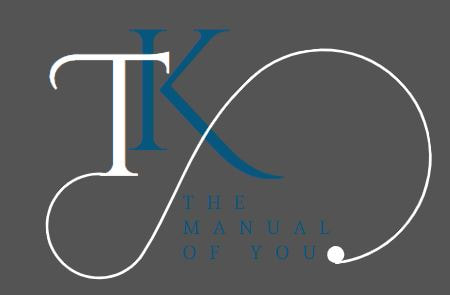|
If there was a quick way to describe and explain both of these terms and offer solutions and fixes, I don’t think we’d be having a global mental health crisis (as described by the media). Not only are the feelings of anxiety and depression very complicated but the words themselves have a lot of problematic issues. So, rest assured, this article will not do either words or the topic justice! Anxiety is the medicalised term for worrying. Worrying is normal and healthy – we’re actually designed to worry a lot and have a whole dedicated part of our brains for this. However, sometimes worrying becomes so overwhelming and takes over our day-to-day life and that’s when it gets labelled with a medical term like anxiety. However, this term has made its way into daily language and it's no longer used in a strictly medical term or to describe a mental health disorder. Now, we’re a ‘bit anxious’ when we have to do a presentation at school, or anxious about our upcoming date or anxious about, well most things that worry us a bit or cause us to have a healthy, or at least, natural amount of fear. Because anxiety is a fear response. It’s a reaction to a fear stimulus. I guess, you’d refer to it as fear if something bad is about to happen or is happening, whereas anxiety tends to refer to the prospect that something bad might happen. It’s an imagined fear. But a fear, nevertheless, and it’s triggered by things that can harm our successful survival. Once upon a time that might be an animal attack whereas nowadays it’s more likely to be the fear of social rejection or ridicule. We used to fear our children dying of hunger and disease, now, it’s more normal to be fearful that our children don’t get into the right university. That’s not, in any way, to trivialise worrying, fears or anxiety. It’s merely to say that our focus has shifted. Often, there is nothing to fear but we do so anyway as a learned coping mechanism because we grew up in unsafe homes around unsafe caregivers and our brains have become programmed towards and highly sensitive to fear stimuli. Anxiety is a bitch. No doubt about it! It robs you of your time and peace of mind and it can make everyday life a trembling, horrible, isolating, soul-crushing, heart-racing, dizzying experience. I’ve often pondered if depression is worse than anxiety. I’ve no answer to this yet and I doubt I’ll ever be able to give a defining answer that will satisfy all. The reason I ponder that is that depression is also horrible, isolating and soul-crushing but it’s also very dark – like quicksand made of tar, pulling you down into something with no solid edges and no visibility, and it robs you of time as well and your peace of mind but on top of that it robs you for your very sense of self, of your personality and of hope. You feel helpless and that’s a terrifying feeling. A feeling of lacking control and certainty which we humans crave. This, anxiety does too! Again, the word depression is a medicalised term. Everyone will deal with low moods and dark thoughts from time to time but it’s when it makes your daily life near impossible to live that it gets a diagnosis and, officially, the name depression. But, it’s another word that’s become minimised in its severity and has entered the daily language. Now, we’re ‘depressed’ when simply tired and in a bad mood. We’re depressed when we’ve had one bad day or an argument with someone. It’s ‘depressing’ when the weather is not to our liking or we’ve worn the wrong outfit to school. Personally, I can’t figure out if I encourage these terms, that were once reserved for those really struggling, to become daily chat as it reduces stigma when it’s a word openly used and by the majority. However, it also takes away due respect for just how depressing having a depression is or how worrisome anxiety is; how absolutely debilitating, immobilising and skin-crawling both a true depression and anxiety is and how many lives are lost every year to these terrifying states of mind. In the brilliant book Lost Connections, author and journalist Johann Hari explores some of the reasons we’re a nation of anxious and depressed people and makes a compelling argument for the loss of connection we have – without others, with nature and without ourselves – to be t he leading cause. We live in a highly toxic environment that isn’t remotely designed for how we, as humans, are designed to thrive. Capitalism is literally killing people and we all go about our days as if it’s not. Because Capitalism has also convinced us that we’re the problem and thus, we have to fix ourselves to get rid of mental ills – ideally by spending money. Buy happiness or pay for therapy – either way, as long as there’s money coming into the system, Capitalism is happy and thriving on your misery. It’s Capitalism that’s convinced you that titles matter and that it’s important to have a solid and impressive career, that working hard is a virtue, that relaxing is for the feeble, that you need money and more money so you can buy things that impress others (and ideally make them jealous too). Capitalism is the driving force behind social media and the fake, filtered life people are sharing causing mental health problems, as well as behind the life-destroying beauty magazines. It’s behind the idea that some people are better than others and more deserving, creating class systems and inequality (socially, financially, between genders and groups of people). It’s behind racism, discrimination, sexism and ableism. Your anxiety and depression is not the real disease, despite you being the one suffering under these conditions, but Capitalism and the modern world as we know it today are the real diseases. You’re, merely, its victim. And the ‘cure’ for anxiety and depression is, in some sense, infuriatingly simple: More time in nature, exercise, socialise, engage in enjoyable tasks, meditation. All of which are free. And people don’t say these things to trivialise how horrible anxiety and depression are, how hard it is to live with these conditions or to take away from the traumatising pasts some people have endured. It’s just that, as social animals, we do thrive on social connection, ‘happiness’ chemicals are released when we exercise (this includes going for a walk or dancing silly to your favourite tune, by the way, it does not necessarily mean a trip to the gym or anything overly exhausting or overwhelming) and when we’re in nature, getting fresh air, connecting with plants and trees, feel the elements on our skin, be that sun or rain or snow, we’re likewise infused by natural, happiness chemicals in our brains. It’d be great if your hobby could include something cheap like drawing, writing or singing and not, necessarily, climbing Everest or driving on a race track (unless you can afford to, of course, then go nuts!) and for most of us, luckily, the things that bring us joy tend to be fairly cheap or free and accessible but we also tend to not prioritise these things because we’re doing overtime at work and saying yes to things we don’t really want to and spending our spare time cleaning and tidying our homes, because apparently dust is far worse than a mental break down. And then there is the whole bastard ‘meditation’ and being ‘mindfulness’ concept. Such annoying buzzwords. But, they’re not only based on centuries of wisdom and proven effectiveness, neuroscience backs up what Buddhists have known for centuries – it literally changes your brain structure. Because, one of the reasons that depression and anxiety thrive is our inability to be in the moment. We’re either obsessing about the past or we’re worried about the future and we’re making ourselves nuts by playing out scenarios that haven’t happened or replaying negative ones that have. Via talk therapy, you’ll gain insight into the root of your problems. You’ll increase your awareness of your struggles. You’ll be in a safe space where you’ll feel heard and understood and validated. You’ll be given tools and strategies to cope with your problems and, depending on the therapist, you might start putting together a proactive plan for the future you want. There’s a whole lot of restructuring needed to change how you think, feel and behave. You’re going to have to create new habits and undo old ones. It’s a lot of work, dedication and effort and whether it’s worth it or not, is an individual decision. There are no guarantees or promised results and there is no realistic or known timeframe to offer people wanting to work on these issues before they’ll see improvements. There is only one question: Would you rather carry on as you are right now or try to change? Thank you for reading. I hope you enjoyed this article. If you did, or didn't, or want to add something or have a question, feel free to comment below (but try and be kind about it - I'm a terribly sensitive soul). Don't forget that this is just my opinion. You don't have to agree. These pieces of writing are just here to make you think and take from it what you like and find helpful and ignore the rest. At the end of the day, it's your life and, therefore, what you consume, what you believe, and what you think and feel is your choice. Also, this article has been brought to you by a perfectly imperfect, flawsome dyslexic. I hope any potential spelling or grammar mistakes didn't take away from your enjoyment.
0 Comments
|
AboutMeandering thoughts about life and the meaning of everything, from a know-it-not-all! Titles
All
|


